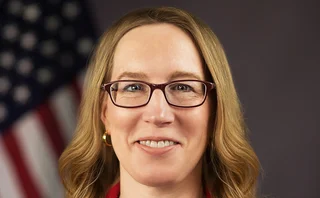
More multibillion-dollar rogue trading losses expected
Industry review shows most investment firms expect another rogue trading event soon
NEW YORK – Results of the Actimize Rogue Trading Peer Review, issued today, reveal that 75% of investment firms predict another $100 million rogue trading loss in the next year. The study also shows that, in response to this perception, 85% of firms intend to modify their internal risk management controls, 75% intend to change their strategy and 60% have already created task forces to address rogue trading.
Additionally, 50% project that rogue-trading activities ranging from thousands to millions of dollars are unreported every year at their firms. Notably, 24% of respondents shared that they have experienced a case of trading fraud at their firms in the past 12 months, and 44% confirmed a case of employee fraud had occurred in the same period.
When asked to speculate why a rogue trader such as Jérôme Kerviel was not caught sooner, respondents ranked “disjointed silo systems” as the top contributor. Most institutions are still monitoring and investigating rogue trading at a group or line-of-business level. This trend is supported by the fact that 74% of respondents said they do not have an enterprise investigation tool that can look across all environments. This siloed, disparate approach is further highlighted by the fact that only 32% of respondents use a single case management platform and sophisticated analytics to combat securities employee fraud within their organisations.
Actimize initiated this peer review in the first and second quarters of 2008 due to the lack of published benchmark data on rogue trading. The peer review was managed by Infosurv, an independent research company. The project included 25 detailed responses from compliance and other experts at firms primarily located in North America and Europe. Some 48% of respondents came from firms with assets of $100 billion and over.
“Our recent peer review study as well as nearly a decade of experience in the financial surveillance market tells us that there are some inherent weaknesses in a siloed approach to transactional monitoring and risk management,” says Amir Orad, executive vice-president and chief marketing officer of Actimize. “As instruments and back-office systems continue to advance and become more sophisticated, firms today are challenged to ‘connect the dots’ across the enterprise and calculate the risk that a particular trader or employee exposes to the firm.”
Only users who have a paid subscription or are part of a corporate subscription are able to print or copy content.
To access these options, along with all other subscription benefits, please contact info@risk.net or view our subscription options here: http://subscriptions.risk.net/subscribe
You are currently unable to print this content. Please contact info@risk.net to find out more.
You are currently unable to copy this content. Please contact info@risk.net to find out more.
Copyright Infopro Digital Limited. All rights reserved.
As outlined in our terms and conditions, https://www.infopro-digital.com/terms-and-conditions/subscriptions/ (point 2.4), printing is limited to a single copy.
If you would like to purchase additional rights please email info@risk.net
Copyright Infopro Digital Limited. All rights reserved.
You may share this content using our article tools. As outlined in our terms and conditions, https://www.infopro-digital.com/terms-and-conditions/subscriptions/ (clause 2.4), an Authorised User may only make one copy of the materials for their own personal use. You must also comply with the restrictions in clause 2.5.
If you would like to purchase additional rights please email info@risk.net
More on Regulation
Foreign banks want level playing field in US Basel III redraft
IHCs say capital charges for op risk and inter-affiliate trades out of line with US-based peers
CFTC’s Mersinger wants new rules for vertical silos
Republican commissioner shares Democrats’ concerns about combined FCMs and clearing houses
Adapting FRTB strategies across Apac markets
As Apac banks face FRTB deadlines, MSCI explores the insights from early adopters that can help them align with requirements
Republican SEC may focus on fixed income – Peirce
Commissioner also wants a revival of finders’ exemption, more guidance for UST clearing
Streamlining shareholding disclosure compliance
Shareholding disclosure compliance is increasingly complex due to a global patchwork of regulations and the challenge of managing vast amounts of data
Banks take aim at Gruenberg’s brokered deposit rule
Regulatory lawyers question need to reverse 2020 rulemaking just four years later
Time running out to backload Emir derivatives reporting
Significant slice of legacy trades still not ready for new formats, as October 26 deadline looms
Gensler to stick to Treasury clearing timetable
SEC chief promises to keep up the pressure for done-away trades







